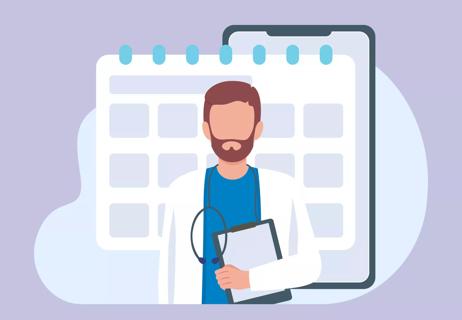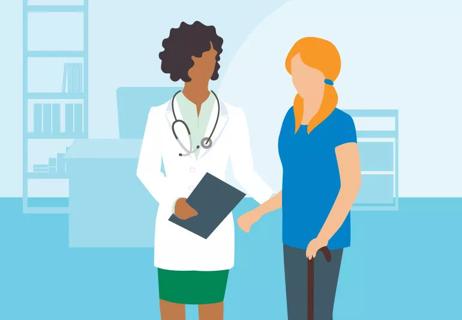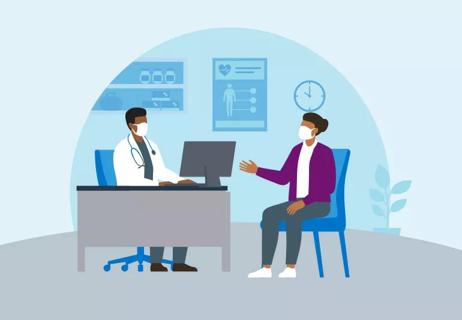Simple tips to make your visit more effective

You thought you were prepared. You had several questions ready to ask your healthcare provider during your in-person or virtual visit — but when the time came, you couldn’t think of a single one. (Or maybe you totally forgot what you even talked about with your provider!)
Advertisement
Cleveland Clinic is a non-profit academic medical center. Advertising on our site helps support our mission. We do not endorse non-Cleveland Clinic products or services. Policy
If this happens to you after your appointments, you’re not alone. But please don’t worry too much about it. There are several things you can do to make your visit more effective and help you get the most out of your one-on-one time with your provider (even when you’re connecting through a screen).
Family medicine specialist Matthew Goldman, MD, shares tips about how you can prepare and feel more at ease during your appointments. Plus, your provider will appreciate that you’ve done your homework and have come for an honest conversation about your health.
Advertisement
Advertisement

Sign up for our Health Essentials emails for expert guidance on nutrition, fitness, sleep, skin care and more.
Learn more about our editorial process.
Advertisement

Red flags include feeling unheard, unimportant or unwelcome in your provider’s office

Signs are what your provider can see, but symptoms are what you feel or experience

Screenings and tests done during a wellness check can uncover hidden health issues

An annual physical exam is important for many reasons, including your chance to ask questions

From odors to colors, it’s more than OK to ask your doctor these questions

This iconic medical tool has an enduring role

It can offer you peace of mind and more information

Smart choices will take you far

Even small moments of time outdoors can help reduce stress, boost mood and restore a sense of calm

A correct prescription helps your eyes see clearly — but as natural changes occur, you may need stronger or different eyeglasses

Both are medical emergencies, but they are very distinct events with different causes